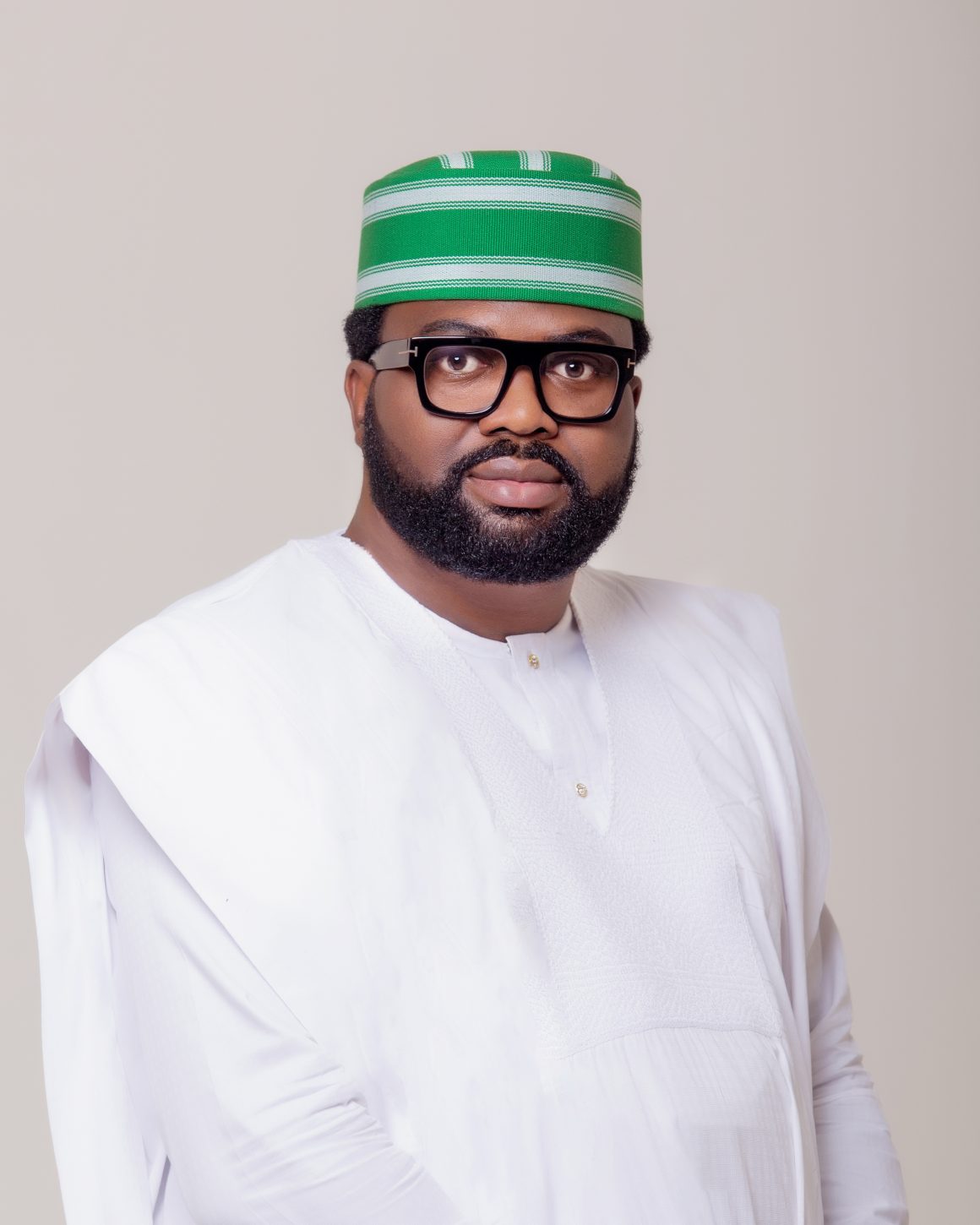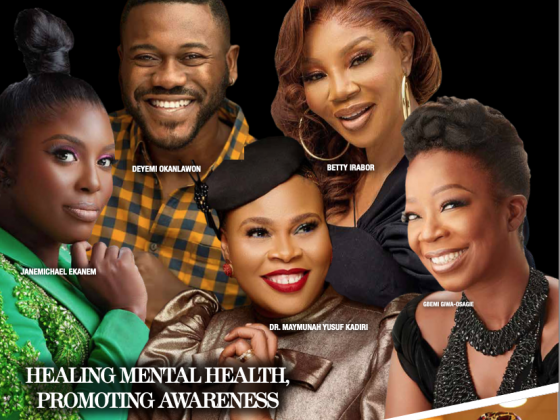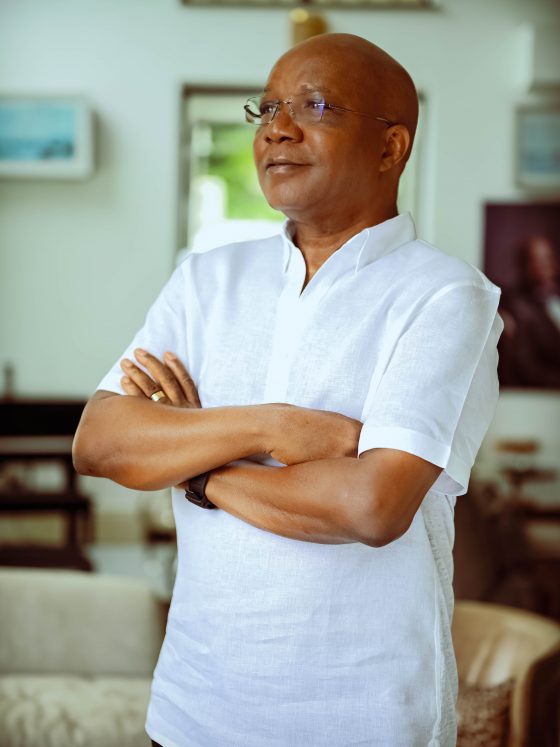Akintunde Rotimi Jr. is a rising star in Nigerian politics. As a dedicated young parliamentarian representing the Ekiti North 1 constituency, Rotimi has quickly made his mark in the House of Representatives. Known for his eloquence, he serves as the Spokesman for the 10th Assembly and leads the House special committee on media and public affairs. His legislative initiatives have spotlighted his readiness and capacity for significant impact, earning him acclaim as one of the young parliamentarians to watch in 2024.
Coming from a family with a rich legacy of public service, Rotimi continues a familial tradition of dedication to faith and nation. His late father, Honourable Chief Akintunde Rotimi Sr., was a noted Second Republic parliamentarian and activist who collaborated closely with Chief Obafemi Awolowo. Today, Rotimi Jr. follows in his father’s footsteps, forging his path in the political landscape.
In a compelling conversation with Funke Babs-Kufeji, Rotimi shares insights into his political journey, his dedication to his constituents, and his ambitious efforts to drive positive change.
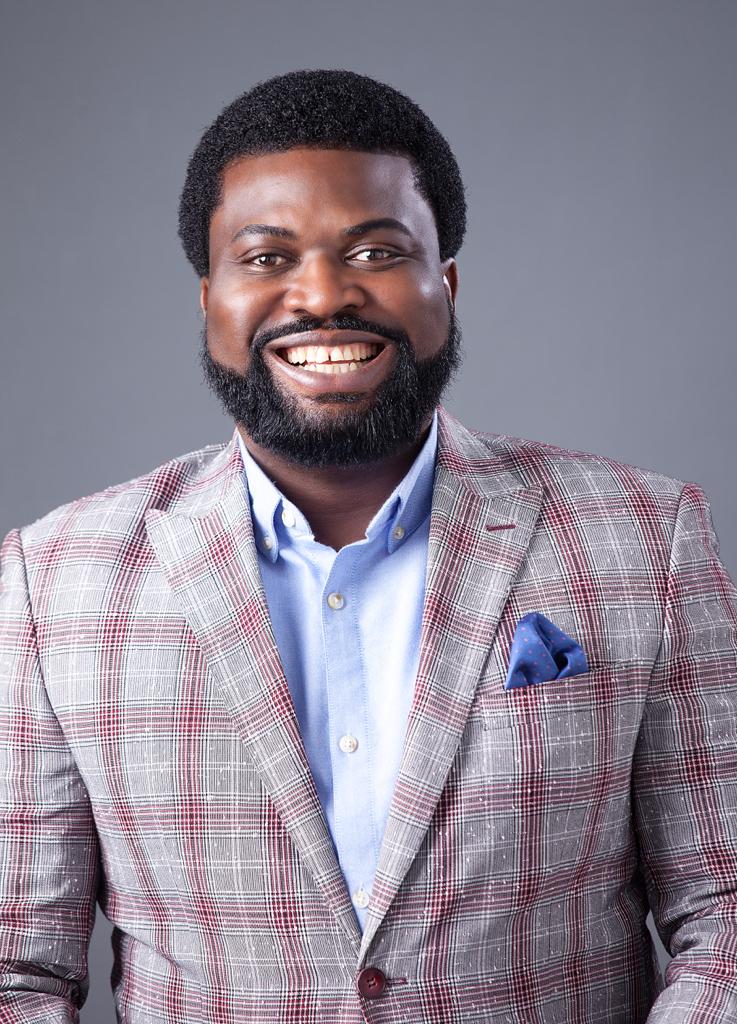
Why and how did you get into politics, and why do you think it’s important for the younger generation to get involved in Nigeria’s politics now?
My journey into politics and public service has been a long one, which can be traced to many influences. Right from my primary school, Corona School Victoria Island, Lagos, I remember we were taught to serve and be socially conscious, with initiatives like our jumble sales, which mandated every student to bring used toys and clothing for charity. These early influences shaped my worldview from a very young age. Likewise, attending Kings College Lagos was also a key factor for me.
Aside from my secondary school years, our alumni community is also very vast and provides an opportunity for life-long relationships with mentors who have gone before you. So, from a young age, I was surrounded by many mentor figures and immersed in an environment that emphasised the virtues of public service, integrity, and social responsibility. People like the late Albert Okumagba, Olorogun Sunny Kuku, Chief Philip Asiodu, Mr. Olumide Akpata, and many others inspired and continue to inspire me.
Growing up in a family with a rich history of activism and public service, I witnessed firsthand the diligence and commitment to excellence my mother brought to her job as an educationist and civil servant. Madam Modupe Rotimi, as a Corp Member in the first set of the National Youth Service Corps (NYSC), was one of 12 people honoured with a presidential award by the then Head of State, General Yakubu Gowon.
I also saw the profound impact that dedicated leadership can have on society. My father, Hon. Chief Akintunde Rotimi, Sr., served as a parliamentarian in the Second Republic, and his unwavering commitment to justice and equity deeply inspired me. He also instilled in me a love for Ekiti, my homeland, and was instrumental in meeting many Ekiti leaders in my early years.
Leading lights from Ekiti State, such as Sir Remi Omotoso (now late), Arc. Fola Alade (now late), Prince Julius Adelusi-Adeluyi, Otunba Niyi Adebayo, Asiwaju Segun Oni, and Dr. Kayode Fayemi, as well as many others, have had a profound impact on me.
Of note, my relationship with my mentor and benefactor, Dr. Kayode Fayemi, the former governor of Ekiti State, has been instrumental to my growth in politics. I have also been privileged to be mentored by and work closely with Erelu Bisi Fayemi, the former First Lady of Ekiti State. Her role as one of the foremost advocates for social inclusion and protection of women has impacted my work.
As a Christian, I have also been impacted by the teachings of people like Pastor Poju Oyemade, Pastor Tony Rapu, and Pastor Dele Osunmakinde, who are gifted in inspiring and facilitating the role of the church in producing impact and change in every area of society.
I believe it is crucial for the younger generation to engage in politics now more than ever. Our country is at a pivotal juncture; the energy, innovation, and resilience of youth are indispensable for driving the transformative changes we need. Young people bring fresh perspectives, a willingness to challenge the status quo, and an innate understanding of contemporary issues.
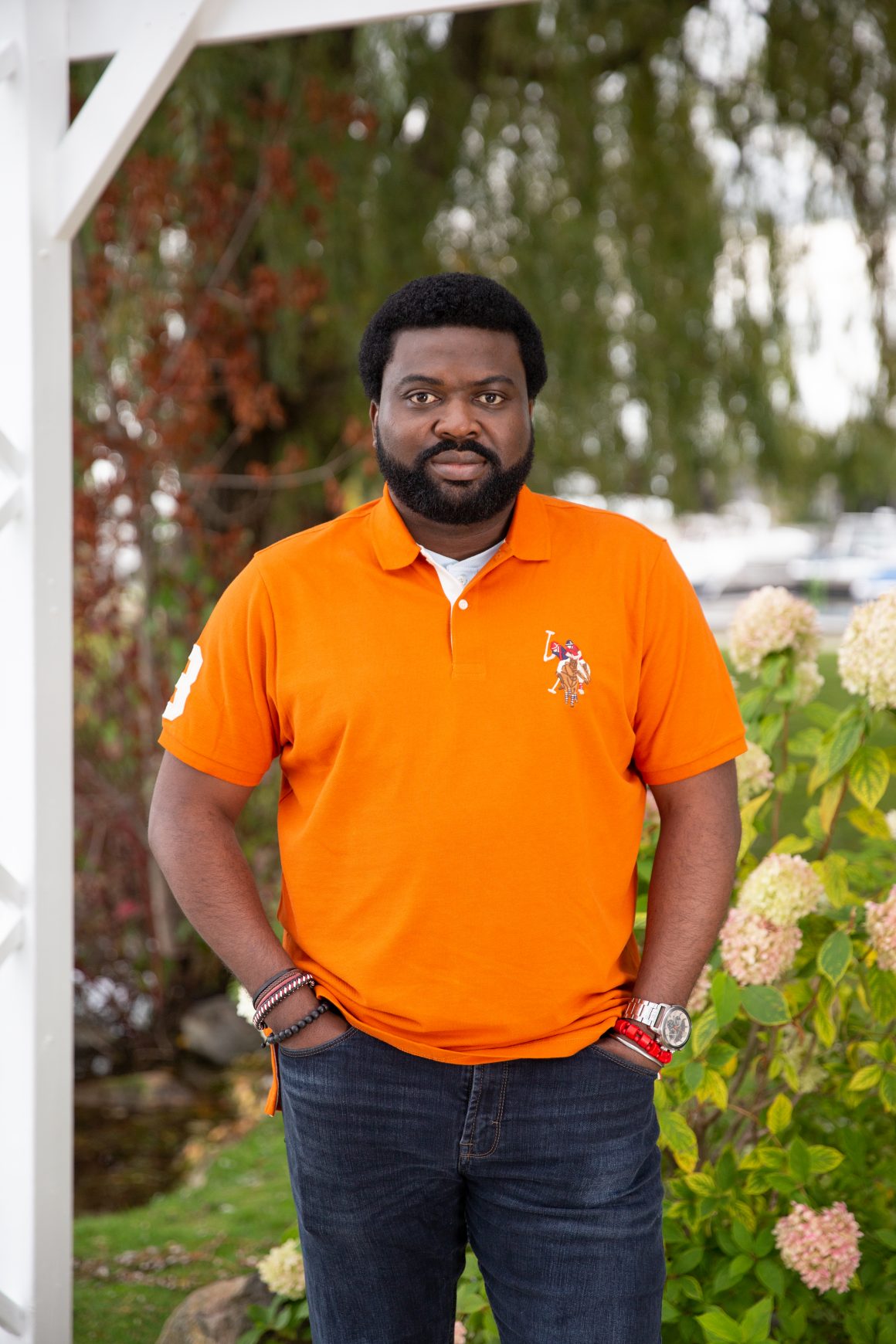
You have held various leadership positions since your time at the University of Ibadan. What valuable lessons did you learn in student leadership that have helped you today?
Serving as President of the Nigerian Universities Geography Students’ Association (UI Chapter) was a transformative experience that honed my leadership skills and deepened my understanding of collective action.
One of the most valuable lessons I learned during that time was the importance of collaboration, especially in implementing ideas that might have seemed ahead of their time. Leading a diverse group of students required strategic thinking, empathy, and effective communication.
A key takeaway from that period was the necessity of creating a shared vision and rallying people around it. This experience taught me that true leadership is about inspiring others to believe in a common goal and working together to achieve it.
This lesson has been invaluable in my political career, where building consensus and fostering unity is essential for driving legislative and social progress. Moreover, it underscored the significance of integrity and accountability, which continue to guide my approach to public service.
More so, I had the opportunity to lead a faith-based organisation called the Fathers House Project, which gave me the opportunity to work with several people to address societal ills that are still rife today, especially cultism.
I remember working closely with the late Emeritus Prof. Olumuyiwa Awe, who was one of the founders of the Pyrates Confraternity and, at the time, the Chairman of the Unibadan Anti-Cultism Campaign Committee.
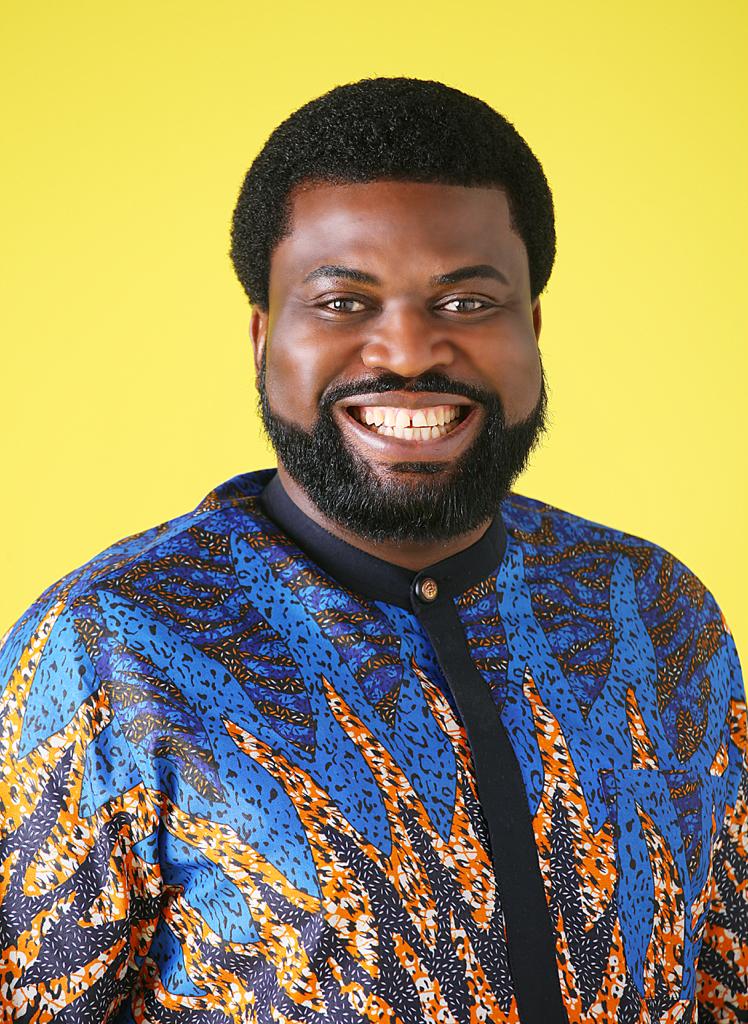
As Spokesman of the 10th Assembly, what are the key legislative priorities of the 10th Assembly, and can you share any updates on the efforts to give Nigeria a new constitution?
The 10th House of Representatives has eight key priorities: Strengthening Good Governance, Improving National Security, Law Reform, Economic Growth and Development, Social Sector Reform and Development, Inclusion and Open Parliament, Influencing Foreign Policy, and Climate Change and Environmental Sustainability. These agenda areas are carefully crafted to align with the Executive’s 8-point Agenda, identify legislative measures critical to enabling the Executive to achieve its vision for Nigeria, and address the challenges facing the country today, promoting good governance and socioeconomic growth and development. Importantly, the House Ad-Hoc Committee on Legislative Agenda consulted critical stakeholders, including representatives of ministries, departments, and agencies (MDAs), civil society organisations (CSOs), development partners, and other relevant stakeholders, in arriving at these priorities.
One of the most significant undertakings of this Assembly is the effort to give Nigeria a new constitution that truly reflects the aspirations and realities of our diverse population. The Constitution Review Committee is chaired by the Deputy Speaker, Rt—Hon—Benjamin Kalu, my predecessor as Spokesman of the House.
I am also proud to serve as the Ekiti State Representative on the Committee at this time. We have concluded the first phase of receiving memoranda, and we are currently reviewing about 305 memoranda received from various stakeholder groups as well as 112 member bills.
Lawmakers are not the most popular amongst Nigerians for many reasons, and rightly so. As the House Spokesman and Chairman of the House Committee on Media and Public Affairs, how are you addressing historical issues of poor perception and trust deficits between Nigerians, your colleagues, and yourself as our representatives?
The trust deficit between the people and their representatives is a significant challenge that requires deliberate and sustained efforts to address.
It doesn’t matter that this Assembly is made up of about 75% new members and an unprecedented number of young parliamentarians led by Hon. Olamijuwonlo Alao-Akala. As the House Spokesman, with my deputy, Hon. Chief Philip Agbese, and other Media and Public Affairs Committee members, I am committed to enhancing transparency, accountability, and effective communication between the House and the public.
One of the key strategies we have employed is increasing the level of engagement and openness with our constituents. Our Speaker, Rt. Hon. Abbas Tajudeen, PhD, has also been helpful because, under him, we have instituted regular sectoral debates, stakeholder engagements, public consultations, and the use of digital platforms to ensure that citizens are informed about legislative activities and can provide feedback.
Furthermore, we are working to reform internal processes within the House to promote efficiency and responsiveness so that every touchpoint the public has with the House challenges their previous negative perceptions.
One year on, would you say the House has positively impacted the lives of Nigerians?
Reflecting on the past year, the House of Representatives has made significant strides in positively impacting Nigerians’ lives. Our legislative actions have focused on addressing key issues such as economic recovery, security, healthcare, education, and social welfare.
While there is still much work to be done, our progress so far is a testament to our commitment to serving the Nigerian people. We remain focused on delivering tangible results and continuing to drive meaningful change in the years to come.
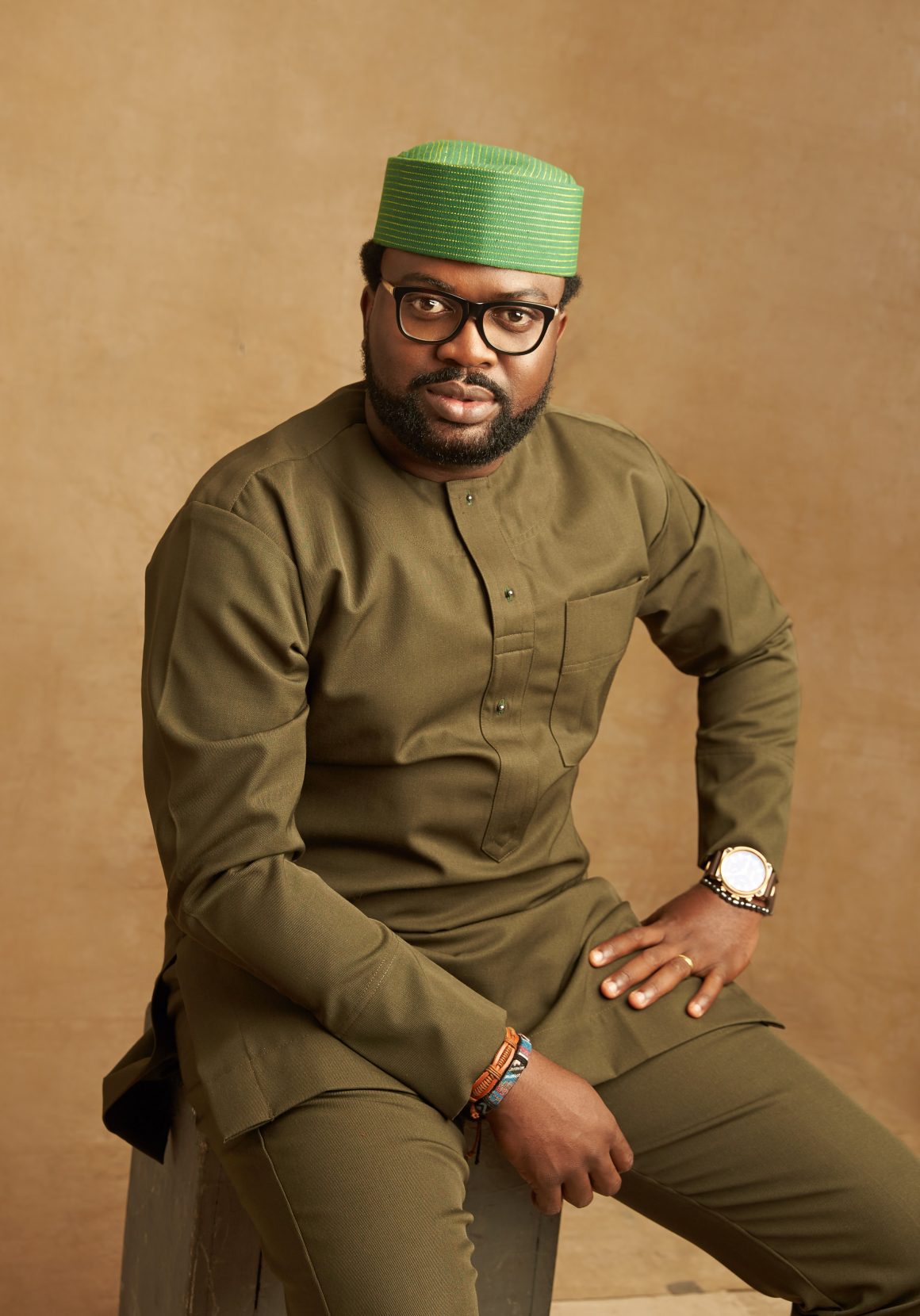
What are some of the bills you have set in motion, and why? What is your opinion about the bill that proposes reverting the national anthem to the old one?
So far, my bills and motions have reflected issues I am passionate about. The central theme of my campaign and political ideology is ‘Building a Kinder Society That Leaves No One Behind.’
This can be seen in my efforts to repeal and re-enact the Discrimination Against Persons with Disability (Prohibition) Act 2023, which aims to create a more inclusive and equitable society for all Nigerians, particularly those with disabilities. There is also a proposed amendment to the Joint Admissions and Matriculation Board Act (Amendment) Bill 2023, which seeks to change the structure of our exams from a ranking test to an aptitude test, allowing for results to be valid for at least three years.
I have also sponsored the Code of Conduct and Tribunal Act (Amendment) Bill 2023, which aims to make it mandatory for public officials to declare liabilities and not only assets so we can have a clearer picture of the financial position of public servants before and after their tenure of office. I also have The Victims’ Rights Bill and Related Matters 2023, aimed at protecting the rights of victims of violent crimes, amongst many others. So far, I have about 30 bills at different stages of the legislative process in just one year of the 10th Assembly.
Concerning the bill that has led to us reverting to ‘Nigeria, We Hail Thee’ as the official National Anthem, it is a reversion to the anthem previously used by Nigerians in the immediate post-independence era between 1960 and 1978. It evokes a sense of patriotism and has lyrics more fitting to the aspirations of Nigerians.
Many would argue that the National Assembly and the President redressed a historical misstep and have argued over the years that we shouldn’t have changed the anthem in 1978 in the first place. Furthermore, as far back as July 3, 2014, the National Conference, which had 492 leaders of thought from across this country, debated and recommended that this position be taken. There has been a broad consensus among civil society actors and other stakeholders before now that this move should be taken.
Also, it is important to note that before May 29, 2024, there was no law on our National Anthem – not even the constitution. This is the first time our national anthem has been codified in any legislation, and it was thought through. I know and appreciate that there are issues around how quickly it was passed and whether that should be a priority for lawmakers. I can assure you that we are far from unproductive for the House of Representatives, which has passed over 80 bills so far in the 10th Assembly. I encourage Nigerians, especially younger generations, to please not jump on the bandwagon to criticise this one issue because it’s popular.
Given your background in the entertainment industry, what are your thoughts on recent moves by the National Film and Video Censors Board (NFVCB) to restrict the depiction and glamorisation of smoking, ritual killings, and money rituals in movies, music videos, and skits?
I understand the delicate balance between creative expression and social responsibility. Movies and other forms of media have a powerful influence on society, and it is important to consider the impact of the content we produce.
While I recognise the concerns surrounding the portrayal of rituals and violence in movies, especially as they relate to the socialisation of our children, I believe that outright bans are not the solution. Instead, we should focus on promoting and incentivising responsible storytelling and encouraging filmmakers to consider the societal implications of their work.
Regulatory bodies should work closely with industry stakeholders to develop guidelines that balance creative freedom with ethical considerations. The legislature and I, as a member, would be only too happy to act on the consensus reached by stakeholders to strengthen legislation.
You were born during your father’s tenure in the position you now occupy. How do you feel walking in your father’s steps, and what legacy do you hope to leave behind?
Following in my father’s footsteps as a parliamentarian is a profound honour and a responsibility I do not take lightly. It is a testament to the enduring legacy of public service and commitment to the common good instilled in me from a young age.
My father’s dedication to justice, equity, and the welfare of his constituents serves as a guiding light in my political journey. I hope to leave a legacy of transformative leadership and lasting impact. I aspire to be remembered as a leader who championed the cause of the marginalised, fostered unity and inclusivity, and worked tirelessly to improve the lives of my constituents.
I am proud that long after his demise in 2017 and even longer since he left office, many still speak fondly of the positive impact he has had on our people. Ultimately, I want to inspire future generations to engage in public service and to continue the work of building a just, prosperous, and harmonious society.
Given your experience with grassroots work, how has this shaped your political perspective, and what insights have you gained that you bring to your legislative duties?
My grassroots work has profoundly shaped my political perspective, grounding my approach in a deep understanding of the challenges and aspirations of the people I serve.
Engaging directly with communities has provided me invaluable insights into everyday life’s realities for many Nigerians, from economic struggles to social injustices. One of the key lessons from my grassroots experience is the importance of listening and being responsive to the needs of the people. Before I got into politics, I had enough time to do development work in countries such as Rwanda, Burundi, Liberia, Sierra Leone, and Uganda. During my stints in those countries, I learned the virtues of empathy and having pure motives because I volunteered in countries where I would never contest elections or aspire to any office.
So, if I can connect with people in Suakoko, Bong County, Liberia, simply because I want to impact lives and communities, I should keep my motives right when engaging with my kinsmen.
What message do you have for young Nigerians who aspire to follow a similar path in public service?
To young Nigerians aspiring to follow a path in public service, believe in the power of your voice and the impact of your actions. The future of our nation lies in your hands, and your active participation in shaping that future is crucial. Be willing to challenge the status quo, stand up for what is right, and work collaboratively to achieve common goals. Educate yourself, stay informed, and remain engaged in the issues that matter to your community and country. Build a strong foundation of knowledge and skills and seek opportunities to contribute meaningfully at every level.
Remember that change often starts with small actions; collectively, these actions can lead to significant transformation. It is also important to note that a path in politics and governance takes time. It took me many years of serving behind the scenes before I had a platform to express myself. We shouldn’t have a microwave approach to leadership, thinking we can show up and power will be handed over. There is a lot of work to be done to earn the trust of the masses and the leaders.
Finally, stay true to your principles and never lose sight of your purpose. The journey may be challenging, but with perseverance, integrity, and a clear vision, you can make a lasting impact and leave a legacy of positive change for future generations.

